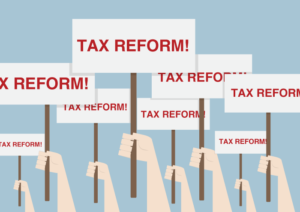Things to Consider for Your 2015 Capital Gains Tax
There are all kinds of investors in the world. Some are looking to make a quick buck by buying and then quickly selling stocks as soon as they increase in value. Other investors buy stocks with an eye toward the future, which means they are in it for the long haul.
In any case, anyone who invests wants to be successful at it. It’s a great feeling to buy stock in a company and see that stock increase in value. However, at some point if you plan on selling that stock and cashing in or your gains, you will have to give a portion of those gains to the taxman. What percentage you will owe will depend on the size of your gain and how long you have owned the stock.
The government wants investors to hold onto their stocks longer. To encourage this they have a lower tax percentage on stocks held longer than a year. Whether you’re a quick turnaround trader or a long-term investor here’s what you should be aware of in 2015 for your capital gains taxes.
First, generally all you need to know to determine your capital gains is the difference between what you paid for the stock and how much you sold it for. When you know that amount then you can calculate the tax. Your tax rate will depend on which bracket you’re in. There are three that apply:
- If your ordinary income puts you in the 10-15 percent tax bracket, then your long-term capital gains rate is 0 percent.
- If your ordinary income falls in one of the 25, 28, 33, or 35 percent tax brackets then your long-term capital gains rate is 15 percent.
- If your ordinary income is in the 39.6% tax bracket, then your long-term capital gains rate is 20%.
There are a few other caveats to remember. For high-income earners, there is an additional 3.8 percent surtax on net investment income. Also, you only pay taxes on the net of your capital gains, which can make a big difference if you sell more than one stock in a year. If you want to learn more about capital gains taxes then please contact GROCO for more answers. Click here or call us at 1-877-CPA-2006.
Learning to Innovate
Learning to Innovate Despite popular belief, learning to innovate and ideation can be taught in a systematic way. Just as easily, business ideas can be vetted in a systematic way. Rob Ryan took his career into orbit when we discovered a business development model which he calls the sunflower model. He built his company- Ascend…
The Inspiration Behind the One Minute Manager
The Inspiration Behind the One Minute Manager “As John Lennon said, “Life is what happens to you while you’re busy making other plans” I met Spencer Johnson at a cocktail party in San Diego- he was a children’s book writer. I don’t know if you remember the the value tale series, the value of honesty,…
American Taxpayers Are All for Real Tax Reform
Taxes, taxes, taxes. One thing is for sure you can’t run and hide from them. While most Americans pay their taxes, some more begrudgingly than others, most taxpayers wish they could pay less. What’s more, most taxpayers would also love to see some real change in the tax system instead of the constant back-and-forth…
Trump Still Not Giving in to Demands Calling for Tax Returns
So what do you think about Donald Trump and his tax returns? This has been the subject of much scrutiny since Mr. Trump announced he was running for president and eventually becoming the republican nominee. Whether you love him or hate him, it appears that most people, even republicans feel that he should release…




